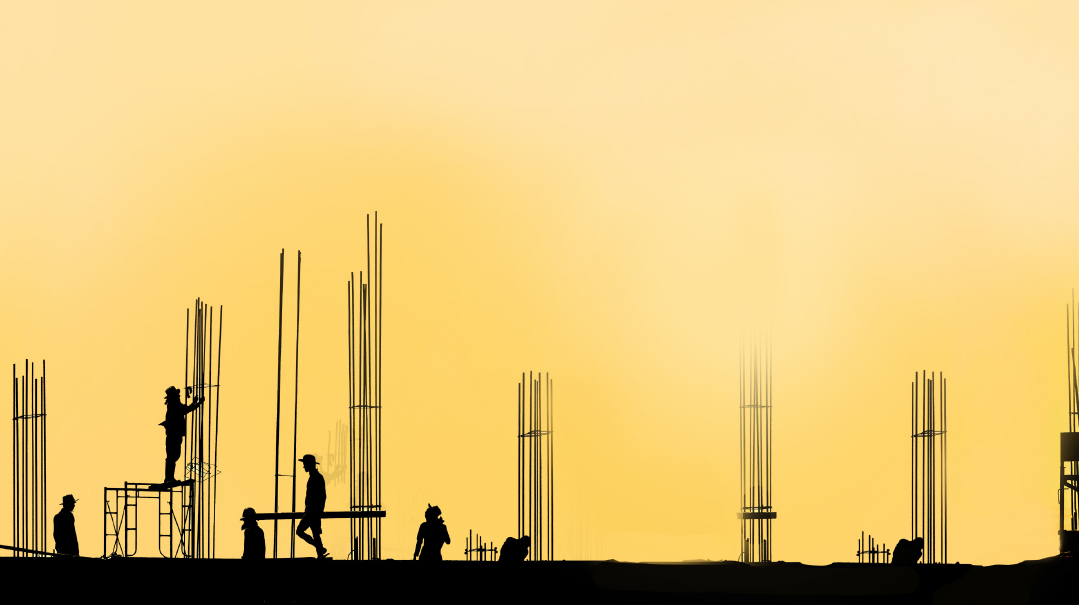War Stories II

Our anxiety no longer has the same urgency — how do we keep feeling?

Discussing the war in Gaza and the ensuing anti-Semitism brought in interesting feedback. Many readers would like to figure out balancing painful realities with regular life. Also, being more tuned-in to galus translates into reexamining our place in the culture around us. Below, a sampling of responses
Got The Memo
A lot of discussion has been centered on the idea that Hashem sends us challenges that direct us to improve and come closer to Him. How can we know exactly what we’re supposed to do and what to pinpoint?
Rav Avraham Grodzinski ztz”l, mashgiach of Slabodka, explained that back in the day, we knew where to improve because the prophets would tell us. Since the loss of prophecy, hardships became G-d’s private communication with us, guiding us as to how He wants us to shape up (Toras Avraham 14–26). What’s true for an individual is undoubtedly truer for a nation.
There are points when a lesson seems glaring. When ousted during Covid, shuls responded by fixing up prayer decorum. Likewise, the buzz in the street is that the togetherness forced on us is too striking to ignore after the strife in Israel this past year.
And while we can’t know with certainty why things happen, we see what does happen and react accordingly.
It’s hard to miss the October 7th Shabbos link. Since then, the interest in that holy day has skyrocketed. That includes an #IsraelMakesKiddush campaign on countrywide billboards and social media, the Hidabrut and Arachim organizations fielding unprecedented curiosity, and an explosion in the requests for hotplates. Even the Jewish Chronicle reported many London synagogues hosting double the former amount of Friday night participants.
We each have unique prompts and circumstances resulting in a completely different encounter with the same events. The diversity of experiences is an astonishing example of Divine Providence. For that same reason, there’s no one-size-fits-all response. We’re each on our own path.
“Cheshbon hanefesh — introspective soul calculations,” is a cocktail of art, science, philosophy, honesty, and courage. When difficulty strikes, the message is “Advance” — and you know yourself best. You can turn to an area you’ve been neglecting, have let slide, or to an undertaking that in the past seemed beyond you. There’s no wrong. As long as you move forward, you’re okay. To stay both balanced and growth oriented, stick to the rubber band method: some good stretch but no snap.
Been There, Done That
There are armed guards outside our schools and shuls and now police patrols, too. That’s besides what happened in Israel. My kids are scared, and I’m not sure what to tell them.
It’s interesting. Often, our children’s unease mirrors ours. If we’re calm and secure that we’re in Hashem’s Hands and whatever He wants to happen will happen, children will sense that. The saying goes that values are caught, not taught.
It’s wise to take reasonable precautions, and you can show that to your family. Being alert and inconspicuous, or trying not to walk around alone, are always smart moves. Some employ cameras, alarms, or even means of defense. We vote, and lobby politicians. Reassure your children and yourself that there’s no natural reason to be afraid where you are. You’re far from a war zone, things are relatively quiet, or whatever. Of course, keep davening.
If your children are small, answer them as simply as possible, without details, in age-appropriate terms. Then give lots of hugs and assure them that Mommy and Daddy take care of them, and Hashem takes care of us all.
Older kids know a thing or two about Jewish history, about Pharaoh putting babies in the wall, about Tishah B’Av. They’ve likely heard about snatched Cantonists and anusim at the stake. This sparks disquiet because they, and we, know there are no assurances. It also provides a context for today’s reality. We’ve seen this before, we’re still here, and always will be.
We’re not called wandering Jews for nothing. Between you and me, no community has ever lasted forever, and every era has had an expiration date. We work to be the best possible in the present, controlling only who we are in the face of world (and personal) affairs.
Heavy stuff for a kid and heavy stuff for me, actually. What should you tell your own child? A parent knows their child’s emotional capabilities best. My young nephew once said to his mother, “No matter what someone does to me, I will never stop being a Torah Yid.” My sister stopped for a brief, serious comment: “Yes, Shmuel. That is very important and very true.”
Of course, let kids know that you view their concerns seriously and respect their thoughts. Make sure to validate their questions. Talk less and listen more. Hopefully, you’ll continue to be their address and source of support, especially crucial for their healthy weathering of these uncertain times.
I Feel My Island Moving
I’m enrolled in a prestigious non-Jewish university close to home. It’s really disturbing that even classmates who helped me make up notes over Yom Tov are super vocal in pro-Palestinian rallies and vigils. I’m trying to stay off campus, taking as many asynchronous and online courses as possible. I’m reconsidering my future here, while hoping this will just end.
You’re not alone in your unease. The New York Times reported that “in the aftermath of the attack by Hamas, [Jewish students] spoke of fear, shock, solidarity, and helplessness,” and just about everyone in a situation like yours has an unfortunate tale to tell.
It’s very gutsy to reassess a decision of this magnitude.Should you decide you’re done where you are, know that we’re blessed with stellar academic alternatives run by G-d-fearing Jews that will happily accommodate your principles, way beyond the geopolitical. They also provide outstanding professional tools, proven by proficiency, placement rates, and salaries. Given that we have these options, and the community’s irritation with secular colleges, it’s worth analyzing why we’re still drawn to them. Despite all the foot-stomping, there haven’t been waves of defection.
There are many factors that might drive a nice Jewish kid to enroll, or stay put, where they’re not particularly wanted. One, is that by nature, Jews — intellectual, ambitious, with this thing about making it “out there” — are entranced by the veneer, the very idea, of hotshot academia. This hails back to ancient Alexandria, heads right through Heidelberg University in 1933, and marches straight into 21st-century Boston, New York, and London. As then, those elite halls of study don’t seem quite as enraptured with us as we are with them.
Correct me if you disagree, but this is starting to feel like a point on the galus cycle: new welcoming lands, Jews excited about joining wider culture, wider culture not as delighted, pushback.
An irreligious woman, previously active in all sorts of Mideastern coexistence initiatives, had her worldview severely upended by the border hostilities. More confusing than that was the malicious double standard of urbane, fellow progressives at the World Court. “Why do they hate us so much?” she asked, looking around her humanitarian social circle. “We’re such kind, decent people. Why would they think we’re that different than they are?”
So maybe you’re thinking, “Lady, we’re Jews. Learn some history. There’s a formula built into creation that helps us remember that we’re not like them. If we don’t make Kiddush, they make Havdalah, can’t you see that?”
Big k-nockers we are. We all understand why she doesn’t get it, but there could be some sweeping to do outside our own front doors.
There’s a wide spectrum of eroding Jewish identity. We sorta knew about off-putting core values, and yet even many heimishers among us sometimes sounded mighty enthralled when mentioning that so-and-so has a Harvard degree. It took tragedy in Israel and rowdy crowds of intellectual anti-Semites to wonder how notable we should be finding that.
It’s fair to see this as part of a wider trend of blurring boundaries. If we have stars in our eyes for secular celebs, resonate more comfortably when our brothers, husbands, or dates have less of a frum look, or emotionally identify with a specific political party rather than just vote for it, we may well have ourselves something of an assimilation issue, too.
Getting More with the Program
You wrote that some people shut down because war, captured Jews, and worldwide threats are too enormous to face. You encouraged developing a deeper outlook to allow us to carry the load. How does one do that if they feel so numb to it?
Often a tendency to shut down can hit when it’s too daunting to feel, absorb, and cope. One way to overcome that and find middle ground is to imagine what someone who finds themselves in tough situations may be going through. Try to fill in details about what it might be like when you can’t go home, or don’t have one to go home to. Or suddenly needing to walk with a prosthetic leg. Picture how it must be when every knock on the door is blood-chilling because it may be bad news.
Give it two seconds, then four, then six. Don’t reject feelings that come up but do brace yourself so you’re not bowled over by an overwhelming rush. Let it in easy, like regulating a faucet from full blast to a slow stream. Breathe deeply.
Detachment can be rooted in unhealthy psychological mechanisms, a disappointing spiritual one, or a combo. If you’re afraid of certain emotions, you may want to dig deeper to discover why that is so. Acting as we wish we were goes a long way. Raise money, get involved, visit.
We have encountered sobering Middas Hadin. The Jewish People are in a precarious state, and neighbors, coworkers, the whole world, really, watch us closely. Even if you are personally feeling disconnected, walk the walk. Blowout parties, outlandish vacations, just saying, are on the strange side.
Be Normal
My friends and I have stuck to our Tehillim commitments and murmur hostages names in davening, yet the anxiety doesn’t have the same urgency as immediately after Simchas Torah. Sure, weddings still find the bochurim singing Acheinu at some point, and then bursting right back into dance. We get upset and sad when we check the news, but then immediately turn to the mundane, “What are we serving for dinner?” How come we petered out? We WANT to feel! How can we reset and find the right balance?
EL Al planes are packed with donated supplies, and Jews who can’t stay away. One explained, “I needed my brain and body to be in the same place.” Every second person seems to be a private chesed organization. Despite that, even the most passionate will note that it’s not the same as it was.
Severe shock and deep grief don’t stay in frozen form. New realities evolve, finding space in our brains where they can be processed and lived with.
There was an older woman from Tel Aviv attending the recent mass tefillah at the Kosel. Two of her sons, both from Be’eri, are hostages, and her daughter-in-law and two teenaged granddaughters were killed. She was a walking, talking, mussar sefer. “Everything is from Above,” she kept repeating. “Everyone has what is meant for them. We can ask, we do ask, and we can even beg, but only He knows what is right for each person.” Of course she was terribly sad, but composed. I doubt that she was that focused and calm on October 8th.
Patricia Fennel, MSW, LCSW-R, lists four steps of adjusting to chronic illness: crisis, stabilization, resolution, and integration. These stages hold true for many long-term crises. First, upheaval of some sort strikes (slaughter, war) and everything goes haywire. Then, as we get used to this reality we stabilize. Next comes adaptation and developing tools for dealing (checking headlines, Tehillim, volunteer commitments), and eventually, it still hurts but is integrated into the rhythm of our lives.
These stages are not mutually exclusive and don’t work in a neat progression. In any event, staying in the initial stage of heightened emotion can be a sign of getting stuck. Reaching a point where you’re making dentist appointments and enjoying weddings — while still sometimes shedding a tear, emphasizing parts of davening that reference captivity, and remaining hungry for connection with unfolding events — doesn’t mean disloyalty or hard-heartedness.
Jews have always multitasked, contending with galus and celebrating life simultaneously. The mussar teachers explain that it’s like having lots of belongings and keeping them all organized in different drawers, opening the right one as appropriate. We learn to do that with our emotions, too, experiencing conflicting yet parallel channels.
The angels, one-dimensional beings, were barred from praising G-d at the Splitting at the Sea, because they couldn’t concurrently sing and retain regret for the loss of Egyptian life. The Jews did offer praise and song, because humans are multifaceted and can feel the loss of G-d’s creations while also rejoicing in their great miracle.
My grandmother was on the phone one year dictating her Shavuos cheesecake recipe to a daughter when a beep connected her with my cousin in Poland, standing outside my grandmother’s childhood address. They both started to cry, when Babba suddenly realized that she was mid-recipe on Line One. She collected herself, jumped over to wrap up the cheesecake situation, then came back to continue crying with Gayil. She commented later, “That’s how we Jews do things.”
When we’re unclear what proper balance is these days, we can think of survivors we’ve been fortunate to know and allow their model to guide us. Realize, too, that our example is noted for future reference.
(Originally featured in Family First, Issue 878)
Oops! We could not locate your form.




